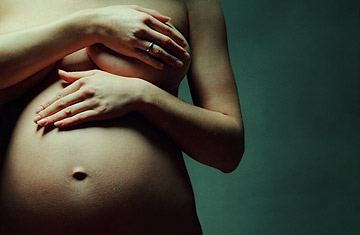
Having a miscarriage is a difficult experience for couples to overcome, both physically and mentally, but most are eager to try to conceive again as soon as possible after the loss. It is not clear, though, how long a couple should wait before attempting to become pregnant after miscarriage to maximize their chances of a healthy pregnancy.
A new report by researchers at the University of Aberdeen in Scotland suggests that sooner may be better. The scientists found that women conceiving within six months of a miscarriage have better chances of a successful and complication-free second pregnancy than women who conceive later. But the conclusion is contrary to an earlier report from Latin America that found higher pregnancy rates among women who waited at least six months to conceive; that report formed the basis of the World Health Organization's (WHO) 2005 recommendation that women delay pregnancy for six months after miscarrying.
Since then, however, the WHO has called for more studies on conception after miscarriage, and the new Scottish study is the first attempt to provide better data on optimal timing for women. Dr. Sohinee Bhattacharya, an obstetrician at the University of Aberdeen, led an analysis of more than 30,000 Scottish women in the national health registry who had lost their first pregnancy but were able to conceive a second time. In line with the WHO's advice, she found that a larger proportion of women (59%) conceived six months or longer after miscarriage, compared with 41% who became pregnant within six months.
But the latter group, it turns out, was less likely to miscarry again and more likely to have a live birth. Women who conceived within six months of their miscarriage were 34% less likely to miscarry again, compared with those who became pregnant six months to a year after the initial miscarriage.
While the study did not address the causes of miscarriage, Bhattacharya speculates that age may be a dominant factor. For many women who decide to start a family at an older age, waiting six months to attempt another pregnancy may work against them, since age is itself a primary contributor to miscarriage. "If a woman is over 30, then waiting another six months will reduce her chances of getting pregnant at all and increase her chances of having another miscarriage, simply because of the age difference," Bhattacharya says. "Our research shows that there is no justification in terms of health reasons for delaying."
Dr. David Keefe, chair of obstetrics and gynecology at New York University Langone Medical Center, says that in developed countries, the primary predictor of a woman's likelihood of pregnancy is her age, not when her last pregnancy occurred.
But that is not true in developing nations, where it is more important that women have access to health care to ensure that any infections or other consequences of miscarriage are fully addressed before they try again. Studies conducted in these areas have recommended a longer interval following a miscarriage, says Keefe, noting that such guidelines were based not only on the toll of miscarrying but also on the impact of carrying a baby to term. Health officials assumed it takes a woman the same amount of time to recover physically after a miscarriage as after a full-term pregnancy — about six months. But that is not necessarily the case, since a successful pregnancy may deplete a woman's body more, in terms of nutrients, than a miscarriage.
The American College of Obstetricians and Gynecologists currently has no recommendations for when to conceive after miscarriage, but many obstetricians say they allow women to decide when they feel ready to start trying again — which in most cases is sooner rather than later. "The guidelines have told us to wait six months, and sometimes even two years. So our heads told us to wait," says Keefe. "But our hearts always told us to get right back in the game."
The new data support that instinct, he says, and may help more doctors and hopeful parents feel comfortable about following up a failed pregnancy with another one as soon as possible.
